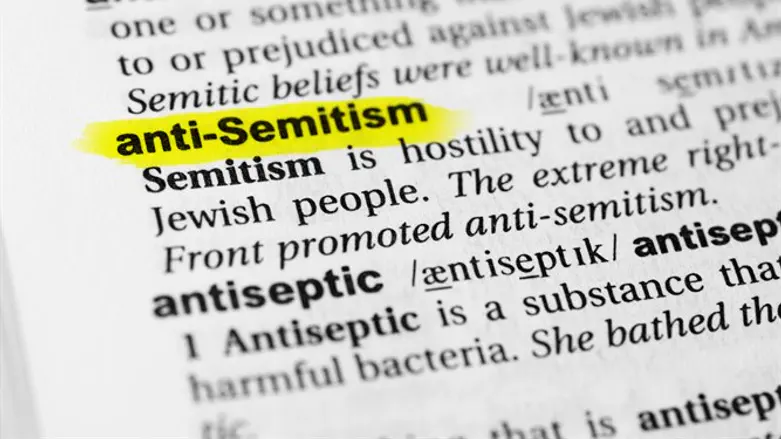
Despite COVID-related restrictions that kept Americans inside for significant portions of last year, the number of reported antisemitic incidents barely decreased in the United States in 2020, according to the Anti-Defamation League.
The number of antisemitic assaults fell sharply, however, and for the first time in three years, no one was killed in an antisemitic attack.
The ADL’s annual audit, published Tuesday, tallied 2,024 incidents of antisemitism in the U.S. in 2020, a decline of only 4% from the 2,107 recorded in 2019. The 2020 tally is the third-highest since 1979, when the ADL began publishing annual audits, and is more than double the 2015 figure of 942. The audits are compiled from reports by victims, law enforcement and community leaders.
With synagogues and other communal institutions shuttered for much of the year, 2020 was free of the deadly anti-Semitic shootings and stabbings that struck the Jewish community in 2019 and 2018. But COVID gave rise to a conspiracy theory in which Jews were blamed for spreading the disease, though the report cautions that “we have not identified cases where we can directly link specific instances of violent antisemitism to conspiracy theories or scapegoating surrounding the COVID-19 virus.”
And while there were fewer physical attacks, the pandemic inspired a new manifestation of hate — “Zoombombing” — in which antisemites would disrupt virtual Jewish meetings with hateful speech or images. The ADL counted almost 200 Zoombombings throughout the year. Zoombombings made up about a third of total antisemitic harassment incidents recorded at Jewish institutions.
“While any decline in the data is encouraging, we still experienced a year in which antisemitic acts remained at a disturbingly high level despite lockdowns and other significant changes in our daily lives and interactions with others,” ADL CEO Jonathan Greenblatt said in a press release. “We can’t let our guard down.”
Last year began with a 25,000-person march in New York City, protesting a spate of attacks against Jews in the area late in 2019, two of them fatal. At that point, before the pandemic was at the top of the national agenda, Jews in New York and elsewhere worried about a further escalation of lethal violence, and leaders at all levels of government promised a response.
Then everything shut down. With synagogues, schools and community centers empty for much of the year, and the streets devoid of crowds, physical manifestations of antisemitism plummeted, along with the overall number of incidents. January saw 270 total incidents, as opposed to an average of 155 per month once COVID restrictions began.
The number of antisemitic assaults decreased by nearly half, from 61 to 31, year over year. Vandalism decreased by 18%. Incidents at college campuses decreased by 32%.
Harassment, a relatively broad category that included the Zoombombings, increased by 10%. Examples in the ADL’s report include a virtual Passover seder where an intruder wrote “HEIL HITLER YOU FILTHY K***S. THE BLOOD OF CHRIST IS ON YOUR HANDS. YOU ARE CURSED FOR HIS MURDER” and a Torah study class where someone wrote “Kill Jews” multiple times and drew swastikas.
The number of incidents involving references to Israel or Zionism remained steady, totaling 178 in 2020, as opposed to 175 in 2019.
Incidents perpetrated by known extremist groups or individuals rose more than 20% over 2019, in a year that saw social unrest due to COVID, racial justice protests and the election campaign — all settings that attracted extremist groups.
An earlier ADL study found that the volume of white supremacist propaganda doubled in 2020 to the highest number in a decade. And a study by the Network Research Contagion Institute found that online antisemitism peaks during periods of national tension.
The ADL audit is the latest of a few studies showing that antisemitism remained relatively prevalent in recent years. A 2019 ADL study found that more than 60% of Americans believed at least one of 11 anti-Semitic stereotypes while 11% believed a majority of them.
A 2020 survey from the American Jewish Committee found that 88% of American Jews say anti-Semitism remains a problem in the United States.
A survey conducted early in 2020 found that more than one in 10 American adults under 40 believes that Jews caused the Holocaust. Another survey published in 2020 found that one-fifth of respondents from 16 European countries believes that a secret network of Jews influences global political and economic affairs.